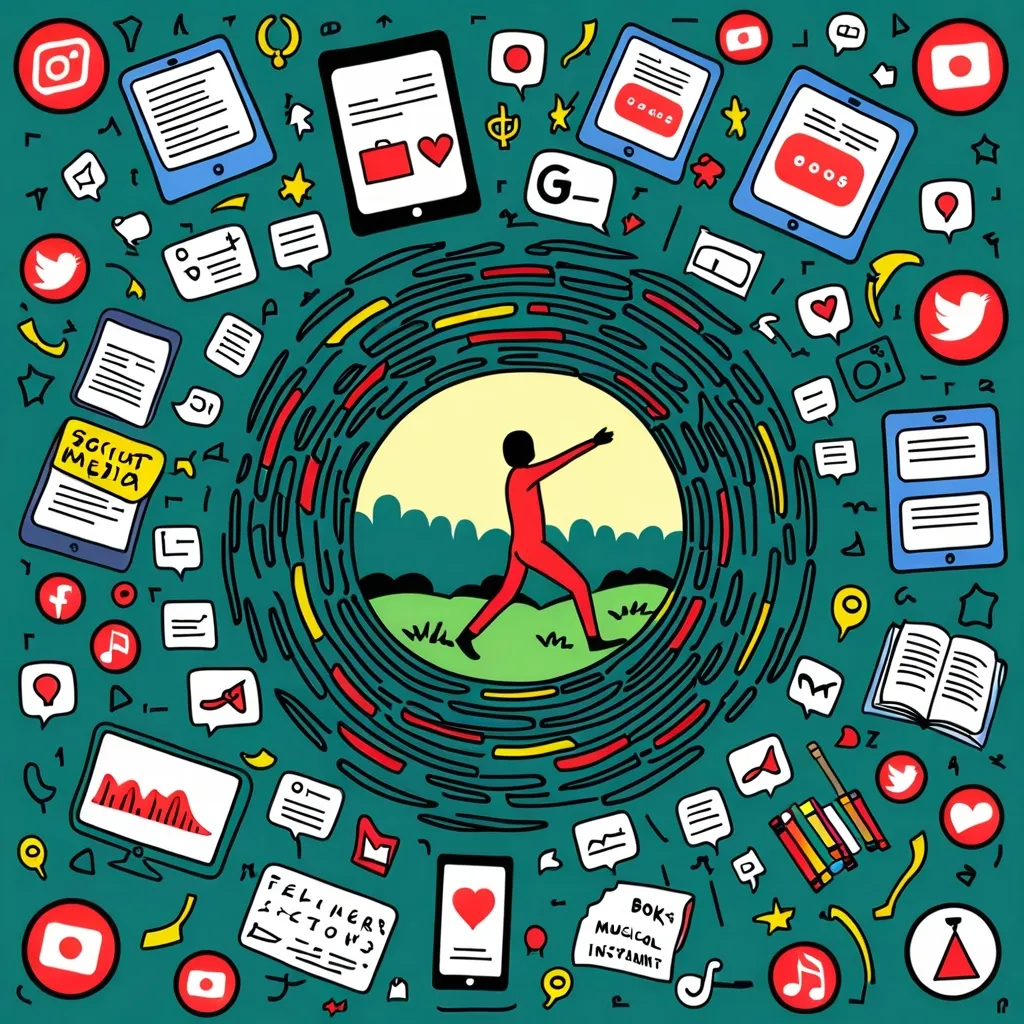Diving into the endless whirlpool of our digital world, it’s no wonder we feel lost in the onslaught of information bombarding us from every direction. From scrolling through social media feeds to binge-watching TV shows, screens have a knack for gobbling up our attention. Eh, it’s easy to get caught up, but it’s also super important to step back and see the toll it takes on our focus and well-being. Let’s explore why cutting down on screen time could be the unsung hero for both our mental and physical health.
Our Waning Attention Spans
It’s a reality check – our attention spans are taking a nosedive. Back in the early 2000s, we were pretty good at holding our focus, clocking in at around 12 seconds. Fast forward to today, and studies, like one from Microsoft, show we’re drifting off after just eight seconds. That’s shorter than a goldfish! A major culprit? The fast-paced nature of social media. We’re constantly flipping through posts, rarely spending more than a few moments on each one. This kind of rapid consumption isn’t doing our brains any favors.
Brain on Overload and the Multitasking Myth
Our brains aren’t designed to handle constant alerts and notifications. Think of it like being on high alert all day, every day. This digital overload can mimic symptoms of ADHD – difficulty focusing, impulsivity, and the like. But here’s the twist: It’s not necessarily that we have ADHD; we might just be dealing with too much screen time.
And let’s not even start with multitasking. One second, flipping through Instagram, the next, half-watching a YouTube clip while supposedly working on a project. It turns out, trying to juggle multiple digital tasks is a recipe for reduced productivity and heightened stress. Our brain gets frazzled, hopping from one thing to another, barely giving our full attention to any single task.
The Bright Side – Cutting Down Screen Time
Dialing back on screen time isn’t just good for our focus – there are loads of other health perks too. First up, it can massively lower stress levels. Staring at screens stresses our central nervous system. This ramps up cortisol, the stress hormone, making us feel anxious or down. Taking a break from all this can help balance those chemicals, lifting our mood and even boosting empathy.
Another win? Better sleep. Screens emit blue light that messes with our circadian rhythms, making it tough to get a good night’s sleep. So, reducing screen time, especially before bedtime, can help in catching those quality Z’s. Think of it like helping your body reset its sleep clock.
Physical Perks of Less Screen Time
Let’s get moving! Plant yourself in front of screens all day, and you’re bound to skimp on physical activities. This sedentary lifestyle is linked to a host of health issues – obesity, diabetes, heart disease, and joint pain, to name a few. When you cut down on screen time, you naturally free up more time for activities that get your body moving, keeping you fit and healthy.
Also, sitting hunched over screens all day is terrible for your posture. Back pain? Likely due to those screen hours. By taking frequent breaks and engaging in physical activities, you can improve your posture and flexibility, keeping those nagging aches at bay.
Caring for Your Eyes and Avoiding Sensory Overload
Ever noticed your eyes feeling dry and itchy after a long day of screen time? That’s no coincidence. Blue light from screens can strain your eyes, causing headaches and blurry vision. Sure, blue light glasses exist, but reducing overall screen time is the most straightforward fix.
And then there’s sensory overload. Constant digital device use dumps a truckload of information on your senses, all at once. This can make it hard to process what you’re taking in, leading to feelings of fatigue, irritability, and more headaches. Cutting back gives your senses a much-needed break, helping you stay sharp and energized.
Practical Steps to Cut Down on Screen Time
So, how do you start? Simple, really. Start by monitoring your screen time. It’s shocking how much time can slip away on your phone or in front of the TV. Aim to cap non-work-related screen time to around 35-40 minutes a day.
Find hobbies that don’t involve screens. Dust off that old deck of cards, take up cycling, start painting – the options are endless. Engage in activities that let you relax your mind, like meditation or breathing exercises. Designate screen-free zones or times – like meal times or an hour before bed. These small changes can have a big impact.
And don’t forget to take breaks. When you’re glued to a screen, break it up with frequent pauses to stretch and move around. A solid rule: no screens two hours before hitting the sack and resist the urge to check your phone first thing in the morning.
Crafting a Balanced Lifestyle
Balance is key. Fill the time you save from screens with enriching activities. Spend more time outdoors. Fresh air can do wonders – be it gardening, hiking, or just a stroll around the block. Dive into physical books. They’re a great way to unwind without digital distractions.
Pick up a new hobby. Maybe you’ve always wanted to try cooking up fancy recipes, dabble in painting, or strum a few chords on the guitar. Spend quality time with family and friends. Real, face-to-face interactions trump digital communication every time. Play board games, engage in group sports – it’s all about meaningful connections.
Looking at the Bigger Picture
Reducing screen time isn’t just about immediate benefits. Long-term, it’s a game-changer. It helps develop better brain function and emotional regulation over time. You’ll find yourself more productive, better at managing time, and leading a more balanced lifestyle.
And there’s the mental health angle too. Excessive digital device use is linked to higher rates of depression, anxiety, and feelings of isolation. By cutting back, you can maintain healthy levels of feel-good hormones like dopamine, serotonin, and oxytocin through more natural, fulfilling activities.
Wrapping It Up
In a world that’s screaming for our attention with every ding and notification, it’s crucial to take a step back. By reducing screen time, we can reclaim our focus, improve our overall health, and strike a better balance in our lives. It’s high time we start making conscious choices about how we spend our days. The benefits are crystal clear, and the steps to get there are simple. Give it a go, and you’ll soon see a noticeable difference.






